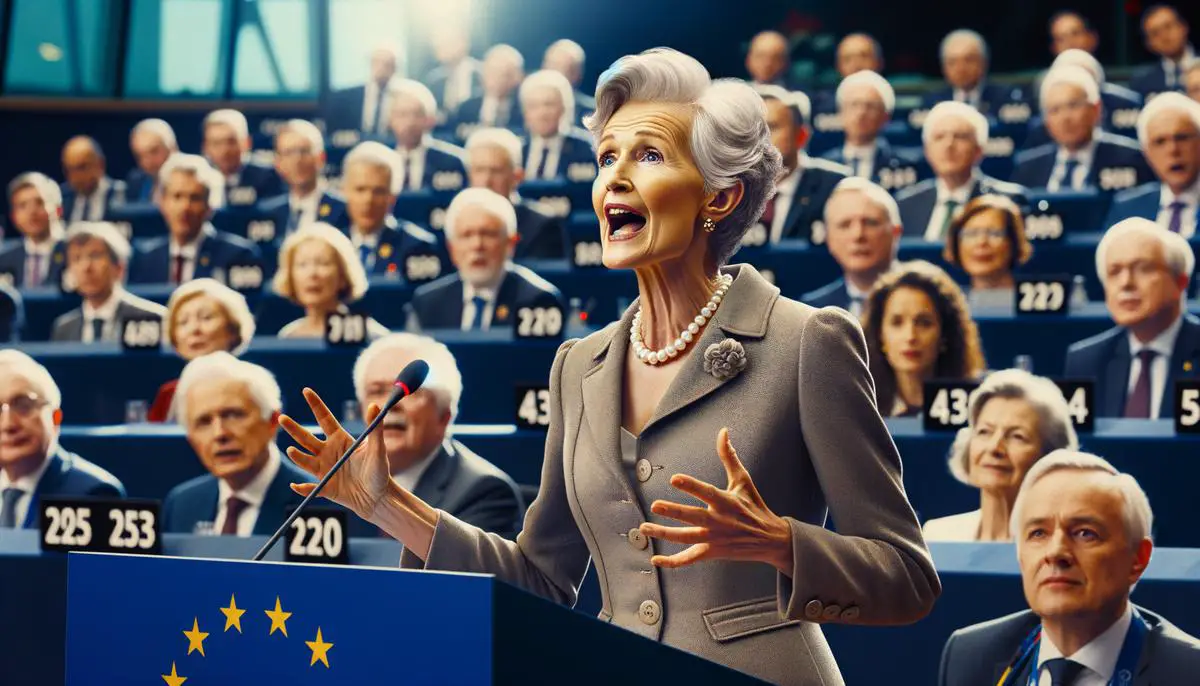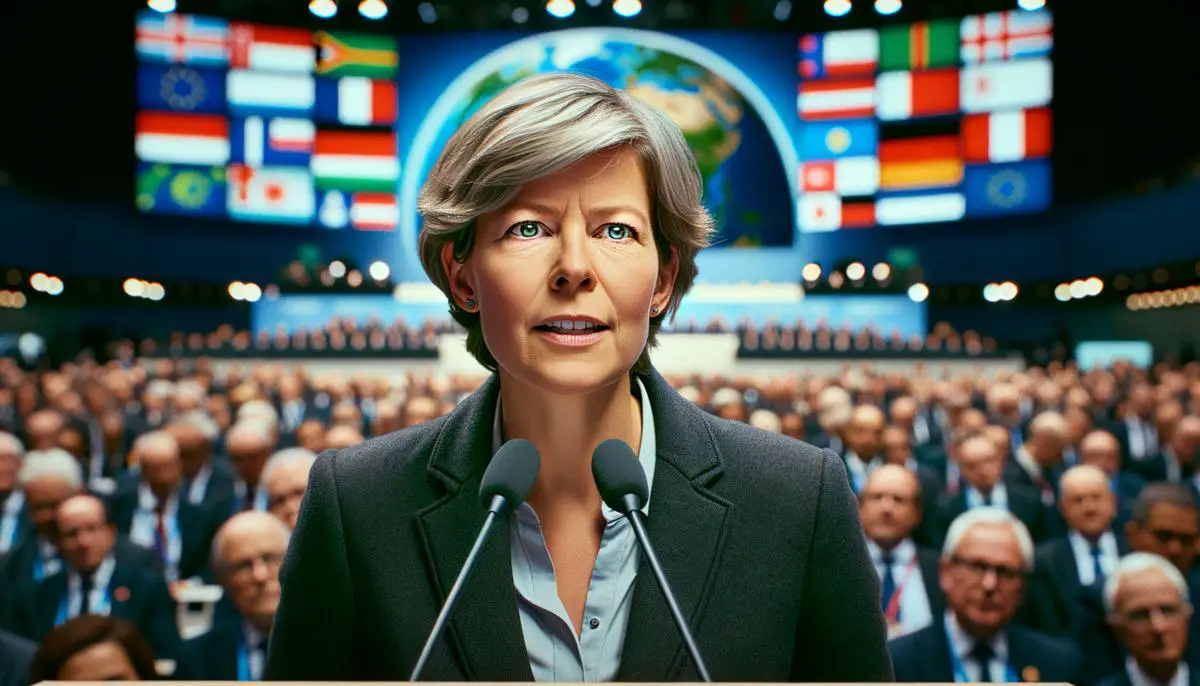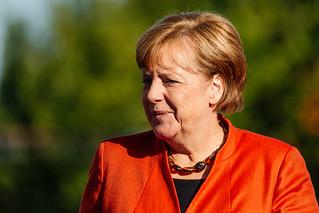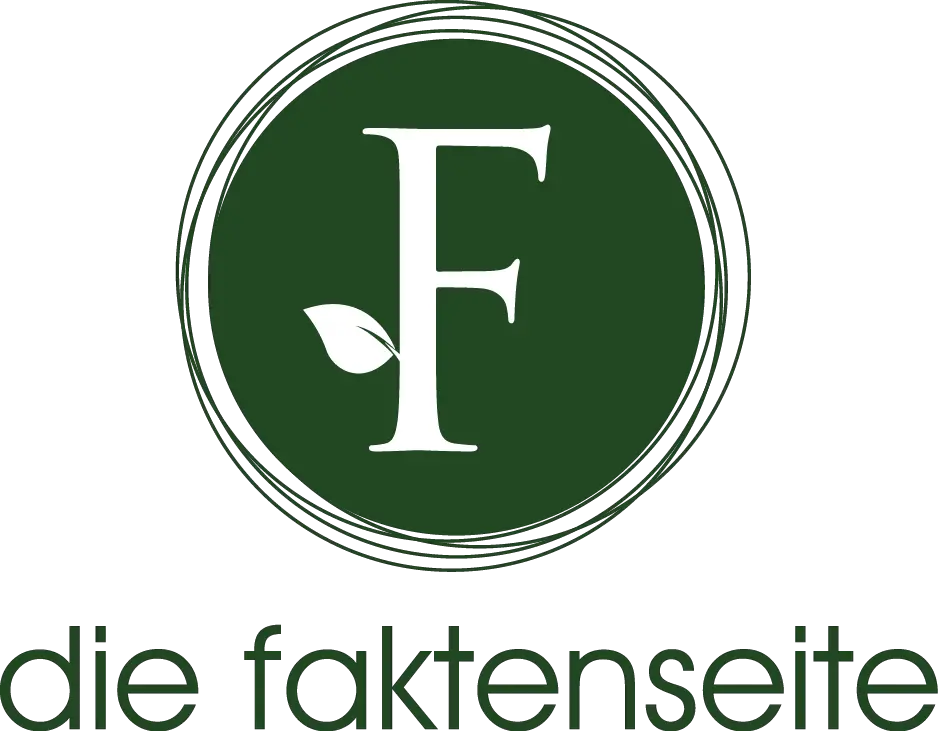Inhaltsverzeichnis
- 1. Amtseintritt als Bundeskanzlerin
- 2. Stabilität während der Finanzkrise
- 3. Energiewende und Atomausstieg
- 4. Flüchtlingspolitik und 'Wir schaffen das'
- 5. Eurokrise und Rettungspakete
- 6. Deutschlands Wirtschaftswachstum
- 7. Einsatz für europäische Einheit
- 8. Beziehungen zu den USA und Russland
- 9. Klimapolitik und internationaler Einfluss
- 10. Politische Langlebigkeit
1. Amtseintritt als Bundeskanzlerin
Angela Merkel made history on November 22, 2005, when she was sworn in as Germany's first female Chancellor. She was elected with the majority of parliamentary votes, showcasing her strong acceptance within her party, the Christian Democratic Union (CDU).
Merkel faced a plethora of national challenges from the start, including the 2008 financial crisis and the 2015 refugee crisis. Her election was the culmination of a compelling campaign against Gerhard Schröder, sealing her reputation as a determined political figure.
With Merkel's oath of office, Germany entered an era that would witness definitive policy shifts such as the phasing out of nuclear power and novel approaches to handling international conflicts. Her enduring tenure, spanning over a decade, points to her political savvy and the stability she brought to both the CDU and the chancellery amidst fluctuating global dynamics.
2. Stabilität während der Finanzkrise
When the 2008 global financial crisis threatened many economies, Angela Merkel's leadership kept Germany stable. Her practical approach received praise from domestic and international observers.
Merkel's administration introduced financial interventions to safeguard the German economy, including a robust stimulus package to boost domestic demand and stabilize employment. She encouraged a balanced perspective on spending which later proved visionary.
Merkel helped broker European-wide initiatives to prevent deepening financial chaos. Her roles in stabilizing the Euro through support mechanisms for Eurozone economies prevented potential economic collapse, preserving the integrity of the Euro project.
Merkel's decisiveness positioned her as a level-headed leader in international discussions at G20 summits during the crisis. Her actions helped stabilize Europe's economic situation and reinforced Germany's position as an essential force in global economics.
Through her pragmatism, Merkel embodied the resilience to guide a nation through economic turmoil and showed dedication to European unity and financial stewardship. As countries navigated troubled waters, Merkel charted a course towards recovery, marking a significant success in her political career and defining her international stance as one of strong leadership and thoughtful crisis management.
3. Energiewende und Atomausstieg
Angela Merkel's term marked a pivotal era in environmental policy, especially following her decisive shift towards renewable energy after the Fukushima nuclear disaster in 2011. This turning point was a strategic, proactive stance towards creating a sustainable energy future for Germany, known as the 'Energiewende' or 'energy transition.'
The abandonment of nuclear power under Merkel exemplifies her ability to adapt national policy in response to global events and domestic concerns about nuclear safety. Merkel set Germany on an ambitious course to drastically reduce its nuclear energy dependency, aiming to close all nuclear reactors by 2022.
This policy solidified Germany's commitment to reducing its carbon footprint and necessitated increased investments in renewable energy technologies. Wind turbines and solar panels began dotting the landscape, ushering in a green revolution at a scale few other countries have achieved.
Merkel's approach ensured that while Germany took bold strides toward environmental sustainability, economic stability was preserved. Support for Energiewende was unparalleled and has lauded Merkel with global appreciation as a leader who recognized the benefits for her country and the long-term global environmental impact.
This transition contributed to job creation in the renewable sector, proving that economic growth and environmental policy can be mutually supportive if managed prudently. Merkel worked through the challenges posed by this fundamental transition, maintaining her poised and pragmatic leadership style.
Merkel's initiative to expedite the nuclear power phase-out in Germany signifies a critical landmark in her career and global environmental policy. It exemplifies perceptive leadership coupled with courage in policymaking, setting a benchmark for leaders worldwide.

4. Flüchtlingspolitik und 'Wir schaffen das'
Angela Merkel's tenure witnessed a moment that redefined Germany's stance on humanitarian aid and recast the nation's place in Europe's migration policy. During the 2015 influx of refugees fleeing conflict in the Middle East and Africa, Merkel's assertive and compassionate approach manifested in her resonant declaration: 'Wir schaffen das' ('We can manage it').
This phrase was tantamount to a policy steer fortified by Merkel's refusal to shut Germany's borders when European coherence over migration was threading apart. Her position came during an unprecedented humanitarian crisis and defied those striving for stringent border closures across Europe. Merkel championed open-door policies that underscored a commitment to human dignity and moral responsibility on an international scale.
Her decision was met with domestic controversy, pitting ethical obligations against political and social concerns around cultural cohesion, national security, and resources. Yet, Merkel remained grounded in her convictions, stressing duty to the displaced despite rising right-wing populism.
Subsequent policies to assimilate refugees featured agreements with Turkey to manage the flow into Europe and initiatives to improve integration processes in Germany. Merkel propelled a narrative shift, embedding immigration into Germany's future discourse, despite facing criticism and political fallout.
Merkel's iconic stance during the refugee crisis elucidated her leadership qualities – optimistic despite challenges, managing uncharted dangers with precision and morality. It bolstered her political repertoire and reassured countless lives impacted by geopolitical havoc, upholding humanistic values in policy-making.
'Wir schaffen das' echoed across global leadership, motivating other nations to re-evaluate their positions on asylum and initiated broader dialogue about responsibility sharing – contributions that fortified Merkel's standing as a globally respected leader.
Amidst opposition and support alike, Merkel's handling of the 2015 refugee crisis positioned her as a symbol of benevolent resilience, revealing both sternness and softness in governance.
5. Eurokrise und Rettungspakete
Angela Merkel's leadership through the Euro crisis, particularly in negotiating bailout packages for debt-ridden EU nations, underscores her deft handling of complex intergovernmental discussions that reshaped Europe's financial landscape. Her role was pivotal in orchestrating financial rescues that prevented the potential economic collapse of countries like Greece, Ireland, and Portugal, maintaining Eurozone stability.
Merkel's navigation involved balancing austerity measures and fiscal solidarity, drawing both reverence and criticism. She championed fiscal discipline as fundamental for European economic recovery, an approach that ruffled feathers but underscored her commitment to sustainable solutions.
Her insistence on fiscal reforms in return for bailout funds was grounded in a vision of an interconnected Europe where stability in one part ensures resilience across the board. Merkel's approach could seem pragmatic, but it focused on preventing a domino effect that could dismantle the Eurozone's economic unity.
Merkel's diplomacy was integral to preserving cohesion among EU member states, especially between those advocating immediate financial aid and those wary of endless fiscal support. Her leadership through these negotiations balanced continental unity and national sovereignty.
While these rescue packages and insistence on austerity were contentious, Merkel's management of the Euro crisis left a decisive imprint on Europe's economic policies and is remembered as a critical test of her crisis management and international leadership capabilities.
Merkel's rigorous efforts during the Euro crisis solidified her reputation as a crisis navigator and played a crucial role in averting a wider European financial disaster, affirming her leadership in times of unprecedented economic upheaval. This facet of her chancellorship showcased a leader ready to make tough decisions, ensuring her legacy as a stringent yet necessary guardian over European economic stability.
6. Deutschlands Wirtschaftswachstum
Under Angela Merkel's leadership, Germany experienced robust economic growth and a significant reduction in unemployment. Amidst fluctuations in the global financial environment, Merkel's tenure focused on strengthening the domestic economy towards growth and sustainability.
Merkel's government implemented labor market reforms and incentivized business investment through fiscal policies. These moves invigorated the German economy and enhanced its global competitiveness.
A significant accomplishment under Merkel was the noticeable decline in unemployment rates. Germany transitioned from high unemployment to boasting one of the lowest rates in Europe. This shift resulted from policy measures aimed at fostering job creation and promoting skilled labor training.
One of her applauded economic strategies was the Kurzarbeit scheme, a crisis-management tool used during the 2008 financial crisis and the COVID-19 pandemic. This short-work program allowed companies to reduce employees' hours instead of layoffs, with the government compensating a significant part of the lost income. This approach stabilized the job market and sustained consumer spending, reinforcing economic stability.
Merkel prioritized the digital transformation of the German economy, evident from investments in digital infrastructure and supportive legislation. Her vision anticipated the long-term pivotal role of digitalization in economic resilience and competitiveness.
Through Merkel's economic management, Germany emerged stronger from global crises, established robust job markets, and set benchmarks in industrial productivity. The intersection of foresight, policy precision, and reactive adaptability under her governance shaped a decade of economic triumph.
Merkel's economic policies showcased a blend of cautious conservatism punctuated with timely bold moves. This fusion assured Germany a leading role in European and global economic discussions, stamping her tenure with the hallmark of economic foresight and solidity.
7. Einsatz für europäische Einheit
Angela Merkel's advocacy for European unity and a collaborative foreign and security policy stands as a keystone in her extensive catalog of achievements. Perceived as the cornerstone of the European Union during her tenure, Merkel fervently supported strengthening the bonds between EU member states, believing deeply in the EU's potential to be more than just a political alliance but a beacon of collective ambition and stability in a fluctuating international arena.
Her leadership was punctuated by a continual push for deeper integration, especially evident in her handling of the Eurozone crisis. Merkel worked tirelessly to ensure that Europe moved together, not apart, advocating for policies that favored unified responses over fragmented actions. She championed initiatives that envisioned a cohesive European approach in addressing economic woes and emerging geopolitical threats and opportunities.
Merkel's dedication was instrumental in bolstering the European project at a time when it faced substantial skepticism. Her commitment saw the groundwork laid for various reforms aimed at streamlining economic policies across the union, such as the banking union and capital markets union, which deeply integrated the financial systems of the member countries, increased transparency, and enhanced economic efficiency.
Steering through stormy seas of nationalistic resurgence across Europe, Merkel stood firm on her belief in the EU's value, even when populist winds blew strong. Under her watch, Germany led by example, opening its doors during the refugee crisis, a controversial decision that simultaneously posed challenges and underscored Merkel's resolve in her policy of human dignity—a principle she staunchly linked to the ideals of the European community.
She pushed for a common European defense policy that resonated with the need for a robust and independent military capability, unique to Europe. Merkel advocated for increased defense spending by European nations to ensure that the EU could maintain its strategic autonomy while building stronger capabilities within NATO frameworks.
Through dialogues, negotiations, and often tough stands, Merkel's political acumen established her as a key negotiator among European leaders, and her diplomatic finesse facilitated better EU-wide coherence in response to global crises. During summits and meetings, Merkel was a quintessential figure whose input was crucial in shaping EU policies—a testament to her dedication to ensuring Europe remained united and formidable.
Merkel's insistence on a unified European stance, underpinned by integration and cooperation, reverberated in legislative reforms, crisis-response strategies, and pivotal decisions defining Europe's course. Her endeavors in knitting together a fractured continent have left indelible marks on the EU's drive towards solidarity and have stamped her legacy as a true champion of European unity.

8. Beziehungen zu den USA und Russland
As Chancellor, Angela Merkel's diplomatic prowess was distinctly visible in her adept handling of foreign relations, notably with global superpowers, the United States and Russia — relationships that spanned the spectrum from overtly friendly overtures to frosty standoffs owing to conflicting political imperatives.
Handling the United States' friendship was certainly no mean feat, especially given the transitions from Presidents Bush, to Obama, to Trump, and finally to Biden. Each administration pivoted on differing policy priorities, ranging from combatting international terrorism and negotiating trade agreements to addressing climate change and reorienting NATO's strategic objectives. Merkel's indispensable role in strengthening transatlantic ties lay in her rare balanced approach, complementing her interlocutor's agendas whilst resolutely protecting German and broader European interests.
Her openness and pragmatic cooperation during Obama's presidency, particularly in matters of economic stability and environmental conservation efforts, earned mutual praise and respect. However, this era of ostensibly smooth diplomacy saw a juxtapose, as revelations of NSA's surveillance program encompassing Merkel's own mobile phone caused notable friction – yet it was handled with Merkel's trademark poise and guarded critique rather than open confrontation.
Transitioning then to Trump's leadership proved to be quite austere in comparison. Merkel found herself often at philosophical loggerheads with Trump, particularly over NATO spending obligations, trade policies, and multilateral agreements which Trump showed scant regard for. The iconic moment from the G7 Summit, where Merkel, flanked by other world leaders, seems to be lecturing an obstinate Trump spoke volumes about her spirit in steering conversations even amidst challenging circumstances.
Her dealings with Russia were no less controlled but far more fraught with tension, especially under Putin's increasingly assertive global maneuvers. Relations were heavily punctuated by conflicting intents; Merkel's advocacy for EU's energy security diverged vastly on issues like the Nord Stream 2 gas pipeline project which has been the point of contention for energy dependence discourse. Political crises such as Russia's annexation of Crimea and its military involvements in Ukraine and Syria required Merkel to display a combination of diplomatic negotiation backed by a readiness to enforce economic sanctions alongside EU partners.
Merkel's handling of both these high-wire relationships elucidates her nuanced understanding of geopolitical strategies and reveals her characteristically German knack for 'Realpolitik'. Firm but fair in negotiations, adamant yet accommodating on necessities; she maintained composure and consistency that balanced Germany's international relations under rippling political waves of two mighty oceans. In Merkel's tenure, her adept steering entrenched her acclaim as a global leader of substance and offered lessons in the pragmatism necessary when dealing with friends and foes alike on the volatile chessboard of global diplomacy.
9. Klimapolitik und internationaler Einfluss
Alongside her many feats, Angela Merkel's push for environmental policies magnetized international acclaim, earning her the title of 'Klimakanzlerin' — emphasizing her as a climate chancellor at the helm. Merkel's policy maneuvering was a driving force in global environmental diplomacy, which cast her into the limelight at key international stages, like the Paris Climate Conference and ongoing G20 summits.
Central to her climate-focused agenda was Merkel's commitment to reducing Germany's carbon emissions and spearheading Europe's thrust into renewable energy. By grounding her environmental initiatives in pragmatic and forward-thinking strategies, she influenced a brand of climate policy that called for balance between sustainability and economic practicality. This equilibrium positioned Germany as a beacon of sustainable practices on the global stage.
Merkel's endeavors were consistent in steering mutual commitments such as multinational agreements that dictated rigorous environmental stewardship. Her rallying call during the Paris Agreement saw Merkel working in unison with world leaders to hold the increase in the global average temperature to well below 2 degrees Celsius above pre-industrial levels, a leap in mitigating the risk posed by climate change.
Merkel's tenure outlined significant strides in embedding environmental concerns within international relationships, advocating for ecological conscientiousness beyond Europe. Her addresses at international forums rarely lacked mention of a holistic approach needed for sustainability — advocating for global movement from coal reliance to more climate-friendly alternatives.
Critics sometimes flagged Merkel's environmental rhetoric as painting a rosier picture than reality permitted, pointing to ongoing coal production sites and delayed closures. Yet even amidst critiques, Merkel's global impact was clear: coupling assertive leadership with negotiation prowess to influence real-time global environmental strategies.
Geared with data, committed to consensus, and unafraid to clash if the timers called for economic expediency over ecopolicy, Merkel exemplified how environmental policy intersperses within the rigors of international diplomacy. Her calibrations on these pressing issues reinforced Germany's pioneering role in climate initiatives and dotted her reflection on the globe as a leader who understands long-term vitality locked within ecological foresight. Thus, Merkel has carved out a legacy that highlights commitment in the realms of global environmental management.

10. Politische Langlebigkeit
Angela Merkel's political longevity is not just a statistic to be marveled at, but a testament to her unwavering presence in the fluid realm of politics, where the tides of favor and fortune can shift quickly. Serving four full terms, Merkel became one of the longest-serving chancellors in the history of modern Germany, spanning over 16 impactful years from 2005 to 2021.
Her enduring tenure in the chancellery is remarkable for the consistency with which she steered the ship of state through waters that were often choppy with crises and unpredictable political winds. Staying at the helm through the vagaries of global financial meltdowns, European debt crises, migration upheavals, and challenges like Brexit and even COVID-19, Merkel's political ear was always attuned to the underlying currents of these times.
Guiding such a long tenure in a high-octane political sphere would require resolve and diplomacy—a combination Merkel seemed naturally endowed with. While others may waiver, she exhibited steadfastness, refusing to capsize under pressure while maintaining her moral compass and political ideology. This steadiness has drawn both criticism and admiration; but love or loathe her policies—Angela Merkel's knack for consistent governance often transformed swinging pendulums of public opinion back into her favor.
Considering the rarity of political longevity in such a high-profile role underscores the magnitude of Merkel's achievement. It was a balancing act that demanded acute people skills and a sensitive pulse on national sentiment—skills honed and displayed over years increasingly punctuated by seminal decisions. She crafted a persona that evoked reliability, becoming for many not just a chancellor, but a kind of political metronome keeping time in an evolving Germany.
From untested first-timer to globetrotting stateswoman, Merkel mastered the art of turning longevity from mere survival into a legacy. Germany under her saw modern adjustments, swift economic reformations, and assumed its role as an indispensable engine of Europe and a lead proponent in global diplomacy. Merkel's protracted grip on power wasn't about clinging to authority but evolving with the demands of time, thus demonstrating that length in leadership could translate to strength in governance. In her resilience lies a master class on how to lead—not just logging years in an office, but leaving marks that time itself will find hard to erode.






0 Kommentare